The Ferrari 365 California has a Pininfarina body and a 365P engine…enough said?
by Wallace Wyss –
Enzo Ferrari definitely knew what side of the bread was buttered. Although he had production cars and race cars in production, he realized he would have to make special limited editions for executives and movie stars, because after all, exclusive wasn’t exclusive if there were hundreds of a model made.
That was the reason the 410 and 400 Superamericas and the 500 Superfast models existed. They were still hard charging Ferraris, but slanted toward luxury and executive transport than the other cars carrying the prancing horse badge.
That also explains the Ferrari 365 California. It carries over no lines from the earlier 250-based Californias. Ferrari again used the name “California,” which to their way of thinking, defined a rare, open sports car. And it was rare…only fourteen were made, roughly one per month from 1966 to 1967.
If you are going to make a luxury car, it behooves you to use as much from an existing car as you can to add to the reliability. The 365 California used a reworked 330 GT chassis featuring a distinctive Pininfarina body.
There was no new trick engineering underneath, and though it used a wishbone front suspension a live rear axle with both leaf springs and coil springs was used in the rear.
The engine was a Colombo long block V-12, based on the 365 P engine displacing 4390 cc. It also had three Weber 40DFI carbs instead of the six you might expect in a car that could be used for racing. Transmission was a 5-speed manual.
The chief appeal of the Ferrari 365 California was in the smooth, clever styling. Ironically, though the car was designed in Italy, it was an American from Birmingham, Michigan who did it. Tom Tjaarda had first worked for Pininfarina in 1959. He adapted design cues from the 500 Superfast and 330GTC to create a svelte open car of grand proportions. Unique elements to the car included covered headlights, pop-up driving lights and a door handle treatment which simulated a mid-engine air intake. The rear was a bit confused.
Originally the show car had flat lenses but for some reason round lenses were put on top of the flat ones, maybe to meet regulations in various countries. One mystery is why the pop-up headlights? Tjaarda told me once that there was an issue with headlight height, even though the pop ups seem lower than the headlights.
The unique rear treatment was shared by the Pininfarina Fiat 124, which appeared for the first time at the Turin Auto Show in December of 1966, six months after the introduction of the 365 California.
Christie’s sold one a while back for $1.2 million U.S. dollars, but it is a difficult car to value as they so seldom come up for sale.
So what’s it like to drive? Well, this author was only a passenger at the Intermountain Concours in Salt Lake City some years ago as Malcolm Page took the wheel, but can testify it was indeed comfortable on its way up an 8000 ft. mountain where we had a lunch appointment at Bobby Redford’s Sundance complex.
It scooted up the mountain with no problem. Especially enjoyable was the view of the seemingly endless wood dashboard and the mysterious unlabeled toggle switches.
Tjaarda has left us now. Sadder still is that we won’t see him doing an encore….
Let us know what you think in the Comments.
THE AUTHOR: Wallace Wyss is penning the second novel in his FERRARI HUNTERS mystery thriller series.
All photos by Mike Gulett.
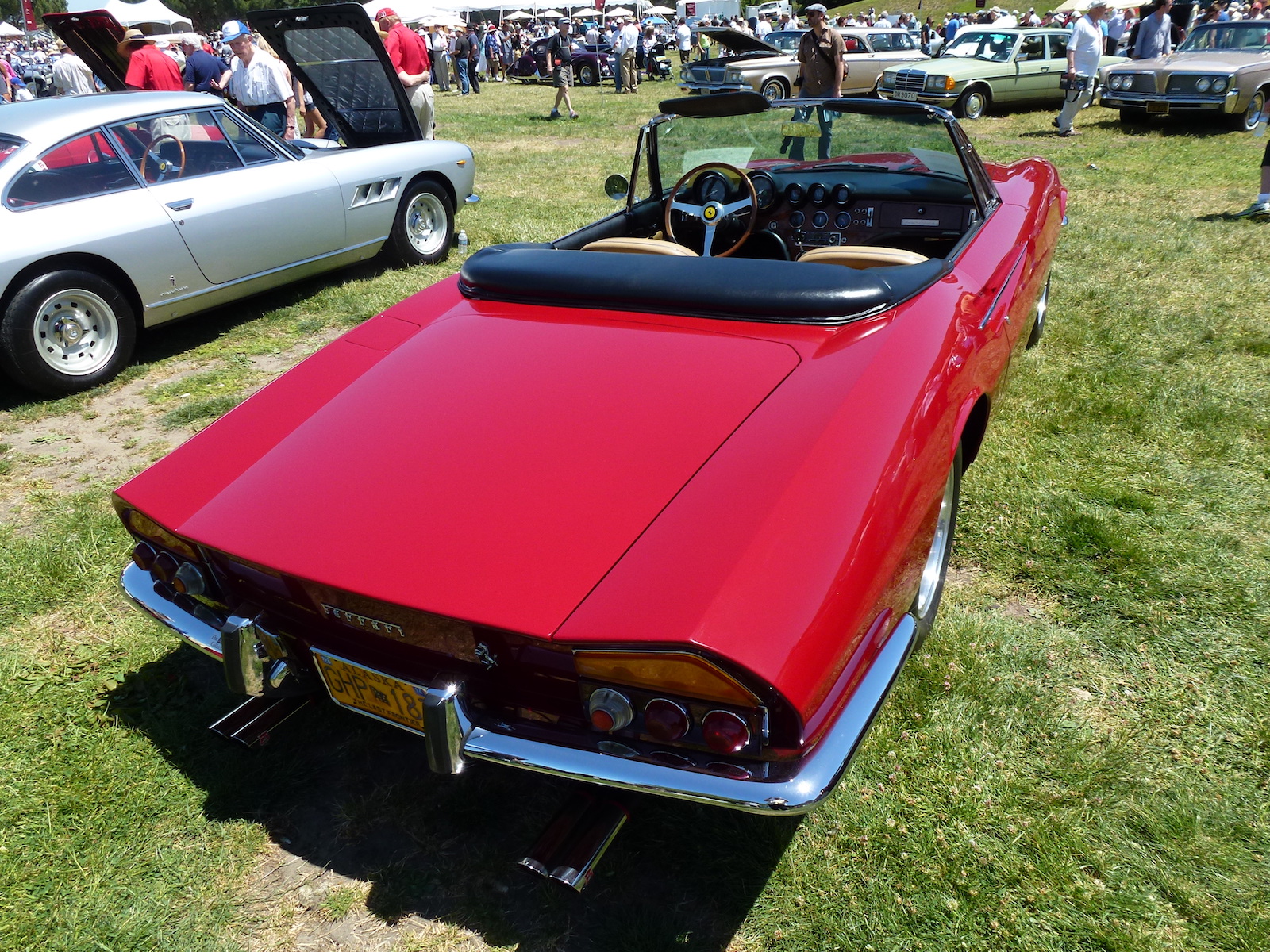
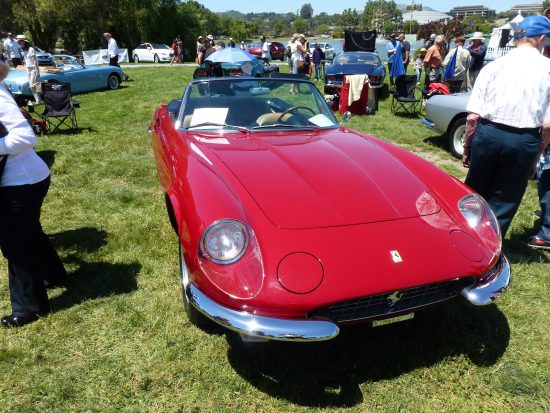
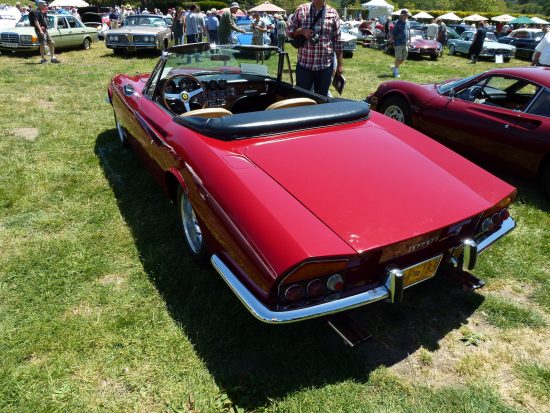
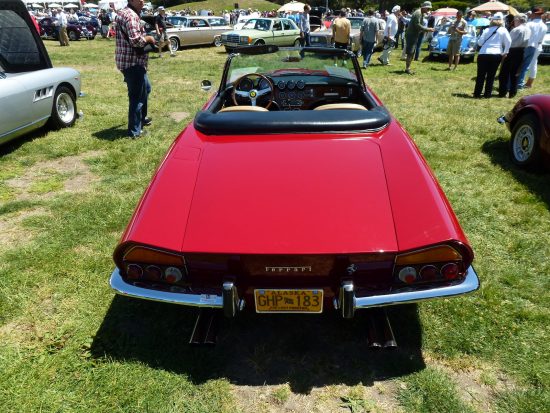
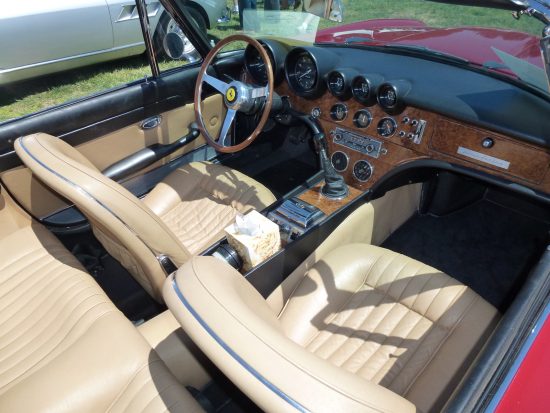
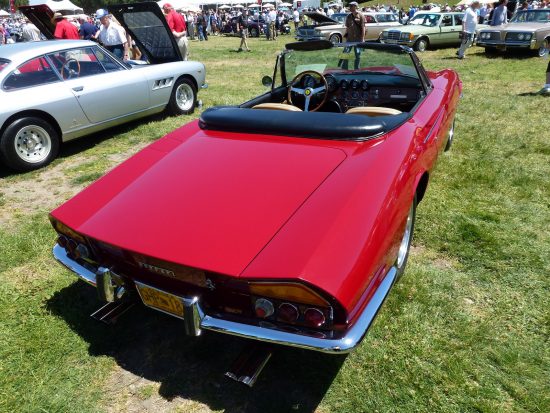
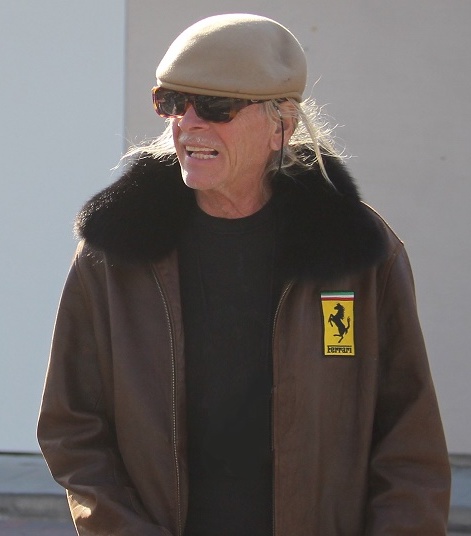
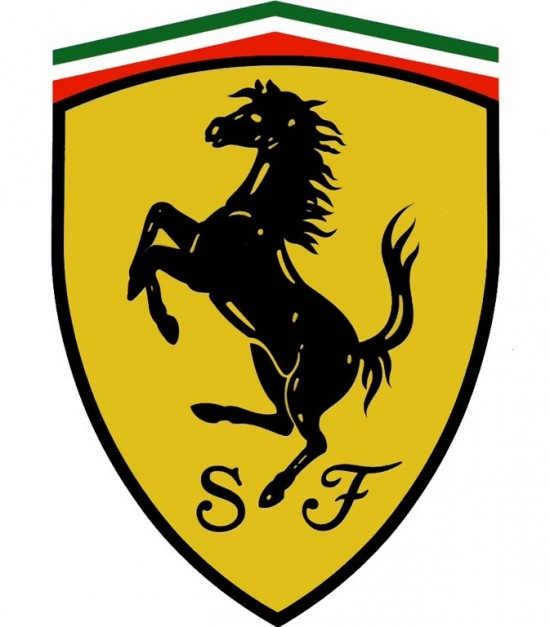
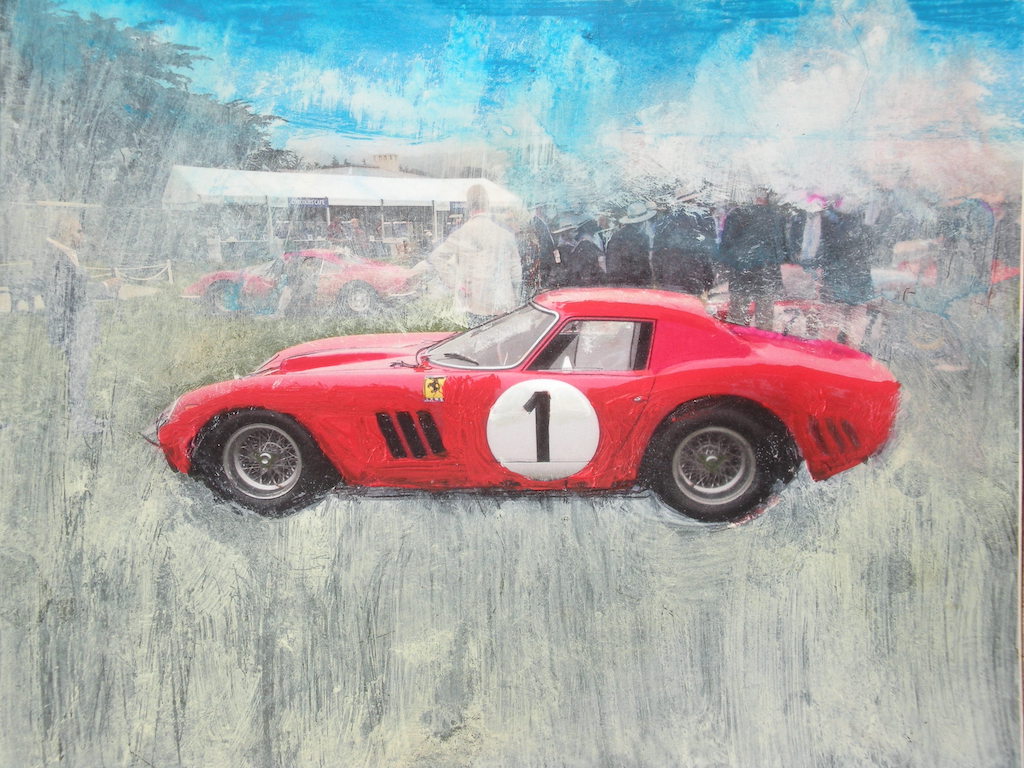

I had the opportunity to drive one of these about ten years ago. It’s a large car by Ferrari standards, not unlike the Superfast. Completely different feel to the more nimble and more powerful feeling 365 GTC.
Why show 3 photos of the rear deck and no side profiles or front 3/4 views?
Because there was not enough room between the cars and the people to take the photos you suggested and there were so many cars to shoot.